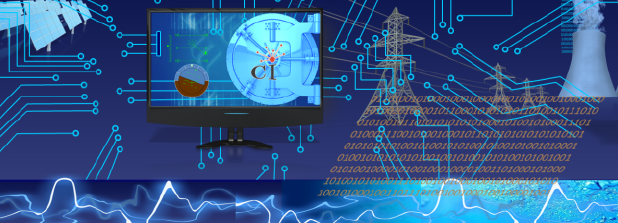ATENA
Advanced Tools to assEss and mitigate the criticality of ICT compoNents and their dependencies over Critical InfrAstructures

Objective of the project
Over recent years, Industrial and Automation Control Systems (IACS) adopted in Critical Infrastructures (CIs) have become more complex due to the increasing number of interconnected devices, and to the large amount of information exchanged among system components. With the emergence of such an “Internet of Things” generation of IACS, the boundaries to be protected have grown well beyond that of the single or aggregated-plant, typical of the monooperator or silos vision. That poses new challenges, as more operators become involved in a scenario that naturally demands the introduction of multi-tenancy mechanisms. New ICT paradigms, where virtualization is playing an important role, provide innovative features for flexible and efficient management, monitoring and control of devices and data traffic. With the OT/IT convergence, OT (Operation Technologies) will benefit from IT innovation, but at the same time, they will also inherit new IT threats that can potentially impact CIs.ATENA project, with reference to the above-mentioned interdependent scenario, aims at achieving the desired level of Security and Resilience of the considered CIs, while preserving their efficient and flexible management. ATENA, leveraging the outcomes of previous European Research activities, particularly the CockpitCI and MICIE EU projects, will remarkably upgrade them by exploiting advanced features of ICT algorithms and components, and will bring them at operational industrial maturity level; in this last respect, ATENA outcomes will be tailored and validated in selected Use Cases. In particular, ATENA will develop a Software Defined Security paradigm combining new anomaly detection algorithms and risk assessment methodologies within a distributed environment, and will provide a suite of integrated market-ready ICT networked components and advanced tools embedding innovative algorithms both for correct static CI configuration and for fast dynamic CI reaction in presence of adverse events.
Contribution of Multitel
Multitel brings to the project its competencies and experience in modeling/simulation of complex discrete systems. Simulation models play important role in Critical Infrastructure (CI) resilience estimation, providing numerical estimation of degradation of quality of service indicators for end customers under various scenarios of adverse events. Together with partners, Multitel implements heterogeneous simulation models of interconnected critical infrastructures – electrical, water distribution, telecommunication together with their SCADA (control software). While domain-specific models and simulators of electrical, water, telecom CI do exist on the market, an overwhelming model including all these CIs and allowing to capture risks related to interdependency doesn’t. To implement such models, Multitel uses its own general-purpose discrete-event intelligent simulator. These models are also to be used partially in ATENA tool testing and validation.
Applications
ATENA Decision Support System (DSS): suite of software/hardware tools aimed at adverse events detection, protection, secure data exchange between interconnected CIs, risk propagation analysis based on interdependencies analysis, risk estimation and mitigation. Main modules of ATENA DSS are Risk Predictor, Mitigation Module and Orchestration Module. The DSS has two main aims:
- Supporting Critical Infrastructure (CI) operators for increasing CI resilience
- Automatically executing reaction strategies for mitigating the consequences of cyber-attacks.
Coordinator
- Leonardo S.p.A. ( former Finmeccanica)
Partners
- Multitel
- itrust Consulting s.à.r.l.
- Sapienza SL
- University of Coimbra -Faculdade de Ciências e Tecnologia (FCTUC)
- University of Luxembourg
- University of Roma Tre
- Institute of Baltic Studies ( IBS)
- Consortium for Research in Autimation and Telecommunication ( CRAT)
- Agenzia Nationale per le nuove technologie, Energy and Sustainable Economic Development ( ENEA)
- Société Wallonne des Eaux ( SWDE)
- CREOS
- Israel Electrical Corporation
